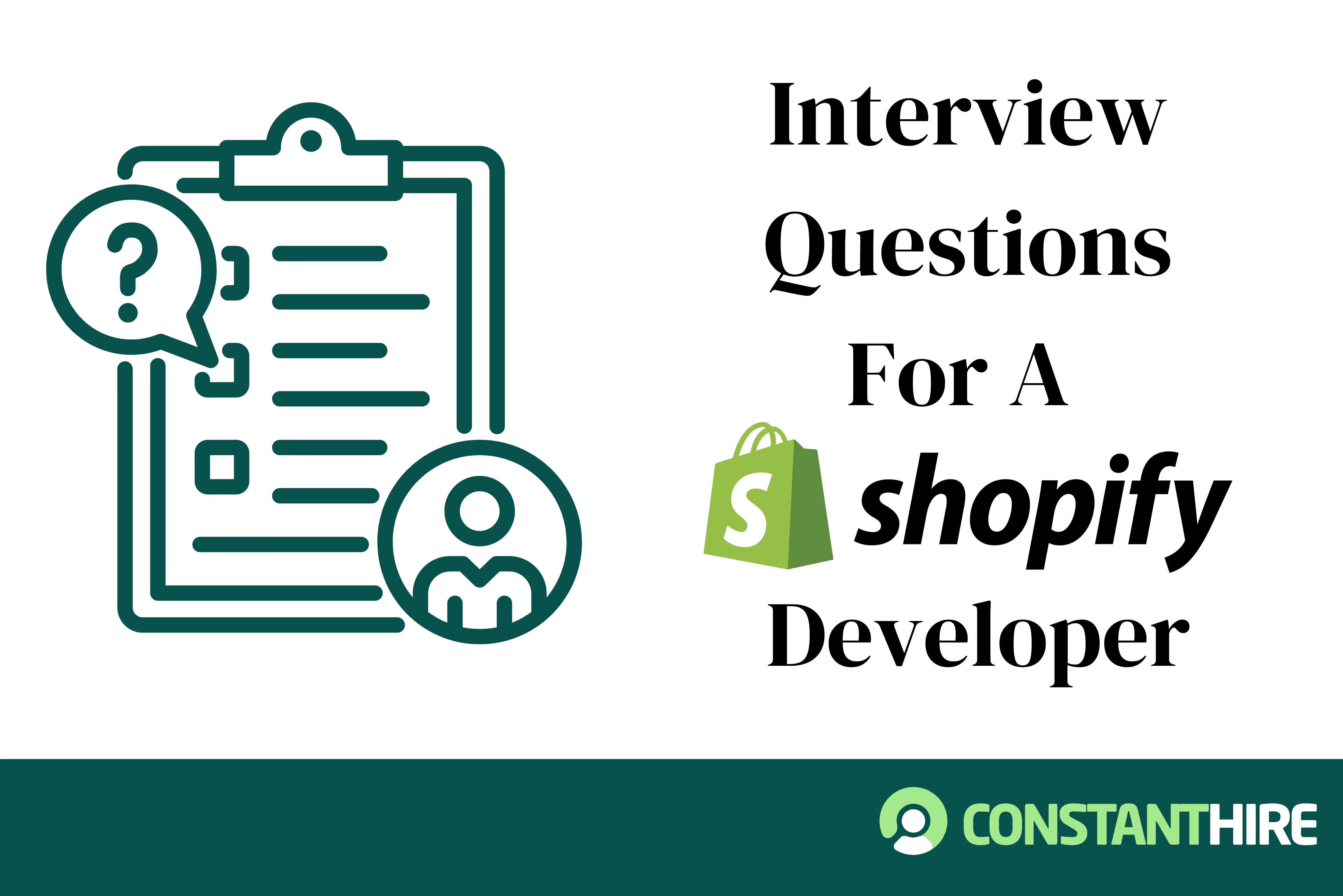9 Interview Questions For A Shopify Web Developer


When you’re interviewing Shopify developers, the questions themselves don’t matter as much as the answers you get back. The trick is knowing what a good answer actually sounds like so you don’t waste time with someone who just talks in buzzwords.
Here are a few go-to questions I like to ask, plus examples of the kinds of responses that usually separate the strong candidates from the average ones:
Good Answer: “I rebuilt the PDPs for a Shopify Plus brand and cut load times in half. Conversions went from 2.1% to 3.4% in two months. I can share the A/B data if that’s helpful.”
Why it’s good: They talk about measurable impact & making sure the developers know what's going to drive consumer behavior. Avoid the classic “I made it look better.”
Good Answer: “First I look at analytics to find drop-off points. Then I test simple fixes like one-click checkout, fewer form fields, guest checkout. I’ll roll out one change at a time and measure the lift.”
Why it's good: They focus on the CRO vs. just the code
Good Answer: “I always work in a staging environment. I test across devices, run QA, and only then push live. I also record Looms so non-technical teammates can see changes before they go out.”
Why it’s good: No cowboy-coding into production.
Good Answer: “I check if the app is lightweight and well supported. If custom work is needed, I’ll use Shopify APIs to connect the data. For one brand, I built a custom loyalty integration that synced points with Klaviyo for targeted campaigns.”
Why it’s good: They’re thinking about performance and marketing outcomes.
Good Answer: “I start with Lighthouse and Shopify’s own reports. Then I compress and lazy-load images, audit third-party scripts, and trim apps that slow things down. I dropped one client’s mobile load time from 5s to under 2s.”
Why it’s good: They know tools and they know results.
Good Answer: “I do weekly updates in plain English.Focusing on what changed, why, and what’s next. If needed, I’ll use Loom walkthroughs. The goal is that marketing or ops never feel left in the dark.”
Why it’s good: They can translate tech into plain language.
Good Answer: “I break code into snippets and sections so it’s reusable. Everything is version-controlled in GitHub. That way future devs don’t have to unravel spaghetti code.”
Why it’s good: No shortcuts that create tech debt.
Good Answer: “I’d use checkout.liquid to add upsells, loyalty points, or progress bars. But I always test, primarily because what bumps conversions for one brand can tank them for another.”
Why it’s good: They know the mechanics and they respect testing.
Good Answer: “Shopify itself handles scaling, but I’d audit scripts and apps to make sure none of them throttle performance. I also set up monitoring so I get alerts if page speeds dip.”
Why it’s good: They’re thinking ahead about growth and stability.
Hiring a Shopify developer isn’t just about finding someone who can “code.” It’s about finding someone who can improve speed, stability, and conversions.
If you’d rather skip the trial-and-error and get matched with developers who’ve already proven themselves with top e-commerce brands, that’s exactly what we do at ConstantHire - e-commerce recruiting for fast scaling brands.
Top talent on your calendar in under 5 days.